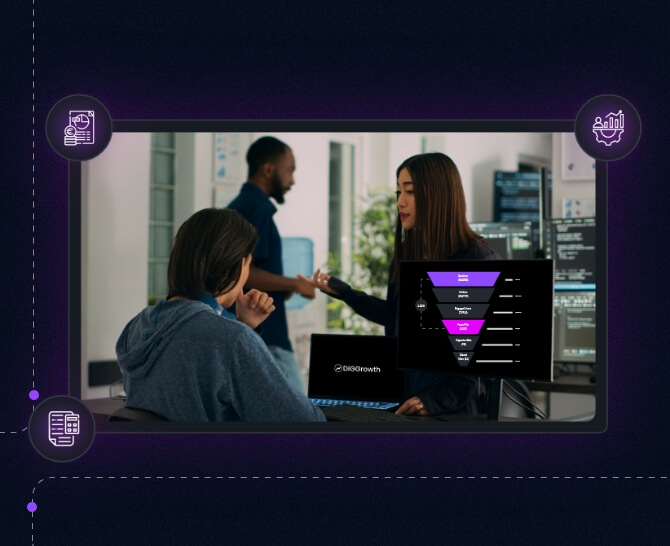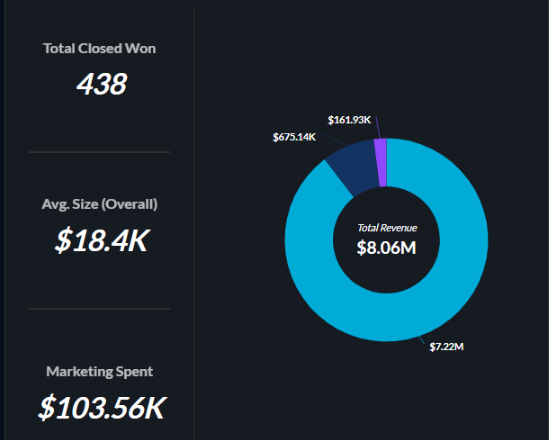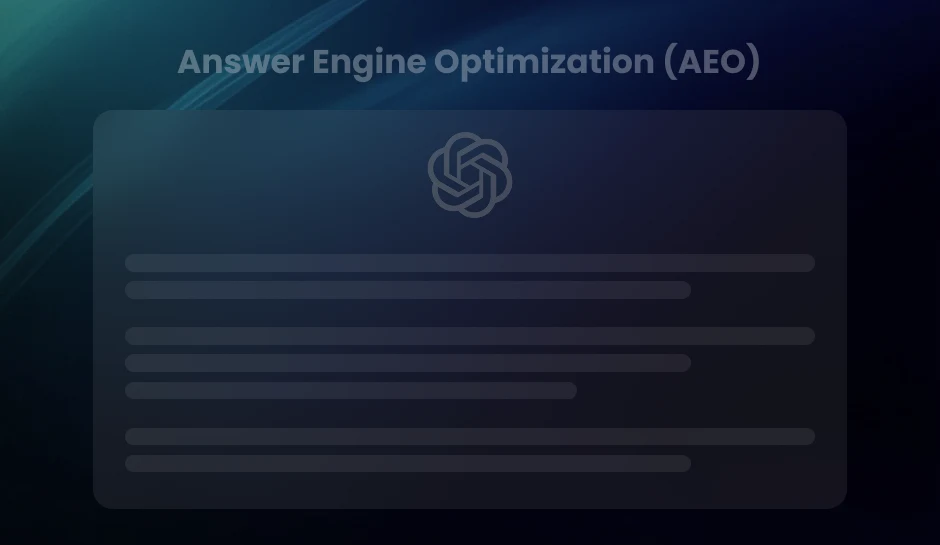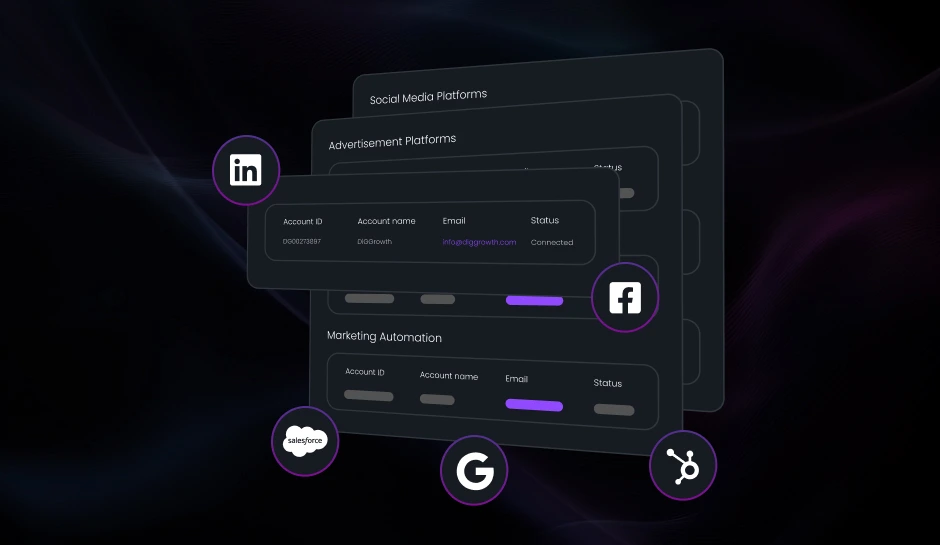
Key Aspects For CMOs While Planning 2025 Marketing Budgets
CMOs are always looking for ways to optimize their marketing expenditures. And by leveraging technology to streamline marketing expenses, they can reduce costs, improve efficiency, and increase ROI. In this blog post, we have covered the common challenges CMOs run into while managing expenses and how the right technology can help them effectively deal with those challenges
As a CMO, managing marketing expenses while achieving optimal results can be a challenging task. With increasing competition and shrinking budgets, CMOs are constantly looking for ways to optimize their marketing expenditures. One effective solution is to leverage technology to streamline marketing expenses. By doing so, CMOs can reduce costs, improve efficiency, and increase ROI.
In this blog post, we will talk about the common challenges CMOs run into while managing expenses and how the right technology can help them effectively deal with those challenges.
Benefits of Streamlining Marketing Budget With the Right Technology
As a CMO, you need to have the right tools in your arsenal to tackle your marketing expenses efficiently. Just like a Swiss Army knife that combines various tools into a compact design, leveraging technology can help you streamline your expenses and achieve better outcomes. Here are some of the benefits of using technology to optimize your marketing expenses:
- Reduced costs:
- Increased efficiency and productivity:
- Better ROI
- Improved decision-making:
Technology can help you reduce costs by automating time-consuming tasks and minimizing the need for manual labor. By eliminating redundancies and streamlining workflows, you can achieve significant cost savings.
The right technology can help you automate processes, increase the speed of execution, and reduce the chances of errors. By doing so, you can achieve higher productivity levels and accomplish more in less time.
The right tools can help you make informed decisions and optimize your marketing efforts for better ROI. By leveraging data analytics tools, you can gain insights into your marketing campaigns, track their performance, and make data-driven decisions that can improve your returns on investment.
Technology can help you make informed decisions about yourMarketing Budget. By using budgeting and forecasting tools, you can plan your expenses better, track your spending, and make data-driven decisions that align with your business goals.
Key Takeaways
- Technology drives CMOs to cut costs, increase efficiency, and maximize ROI in marketing expenses.
- Key tools like automation platforms and analytics overcome common CMO challenges in expense management.
- DiGGrowth and highlighted tools empower CMOs to personalize engagement, enhancing conversion rates.
- In this blog you can learn how data-driven insights from analytics tools can empower your decision-making and enhance campaign performance.
Common Challenges Faced in Managing Marketing Expenses and CMO budget
Technology can serve as a powerful tool for CMOs to streamline marketing expenses. However, there are several common challenges that CMOs face in managing Marketing Budget that can make it difficult to achieve optimal results. Let’s explore some of these challenges.
- Lack of visibility into Marketing Budget:
- Time-consuming manual processes:
- Difficulty in tracking ROI:
- Limited resources and budgets:
- Complexity of managing multiple marketing channels:
This can be equated to being lost in a dense forest without a map or compass. Just like a compass can help navigate through unknown terrain, technology tools such as accounting software and budgeting tools can provide CMOs with a clear overview of their expenses and enable them to make informed decisions.
These can be compared to trying to cut a thick rope with a dull blade. It can be a frustrating and time-consuming task that may not yield the desired outcome. The use of technology tools like automation software and analytics platforms can help streamline these manual processes and improve efficiency, allowing CMOs to focus on more important tasks.
This can be compared to fishing in murky waters without a hook or bait. It can be difficult to determine the effectiveness of marketing activities without the right tools to measure them. Marketing automation platforms, analytics software, and reporting tools can provide CMOs with clear insights into the performance of their marketing activities, allowing them to adjust their strategy accordingly.
This can be compared to attempting to build a shelter without any tools or materials. It can be a daunting task that requires resourcefulness and creativity. Technology tools like Canva, a no-code design platform, and Hootsuite, a social media management tool, can help CMOs stretch their limited resources by enabling them to create professional-looking designs and manage multiple social media platforms, all in one place.
This can be a challenging task that requires a comprehensive toolkit to ensure that all channels are functioning optimally. In this case, marketing automation platforms and analytics tools can help cmo budget manage and optimize multiple marketing channels, ensuring that their efforts are streamlined and effective.
Best Practices for Streamlining CMO’s Budget Using Technology
In marketing, as in life, having the right tools is essential. But it’s not just about having the right tools, it’s also about having them in the right combination. A Swiss Army Knife is a perfect example of this. It has multiple tools that each have a specific function, but it also combines them into one compact and versatile device. Let’s now take a look at some best practices for CMOs to streamline their Marketing Budget using technology.
- Automate Marketing Processes
- Implement Cloud-Based Accounting Systems
- Utilize Budgeting and Forecasting Tools
- Leverage Analytics and Reporting Software
Streamlining Marketing Budget requires a combination of different tools and technologies. One important tool is a marketing automation platform (MAP). MAPs can automate many repetitive and time-consuming tasks, freeing up time and resources for other activities. With the right automation tools in place, CMOs can optimize their marketing campaigns and achieve better results with less effort.
Another tool that can help streamline marketing expenses is a cloud-based accounting system. These systems can provide real-time visibility into expenses and help to reduce manual errors and inefficiencies. By centralizing financial data and streamlining accounting processes, CMOs can gain greater control over their cmo budget.
Budgeting and forecasting tools are another important component of managing lean marketing budgets. These tools can help CMOs to better plan and allocate resources, and to make data-driven decisions. By having a clear understanding of budget and resource constraints, CMOs can optimize their marketing spend and achieve better results with less waste.
Finally, leveraging an analytics and reporting software, like DiGGrowth, is essential for any CMO looking to streamline Marketing Budget. These tools can provide real-time insights into marketing performance and help to identify areas for improvement. By using data to drive decision-making, CMOs can optimize their marketing campaigns and achieve better results with less effort.
From marketing automation platforms to budgeting and forecasting tools, while analysing cmo budget one must carefully select the right tools for their specific needs. By using these tools in the right combination and leveraging analytics and reporting software, CMOs can optimize their marketing budget and achieve better results with less waste.
Also See
Key Categories of Marketing Expenses
A. Advertising Expenses
Advertising expenses form a crucial part of any marketing strategy. It involves the costs associated with creating and distributing advertisements to promote a product or service.
- Advertising Costs
- Direct Mail and Print Advertising Costs
Television, radio, and print advertisements
Billboard and outdoor advertising
Online display ads
Printing and designing promotional materials
Mailing costs
Printing costs for brochures and flyers
B. Digital Marketing Expenses
In today’s digital age, digital Marketing Budget are a crucial part of any marketing budget. It involves costs associated with online marketing efforts.
- Social Media Marketing Costs
- Content Marketing Expenses
Promoted posts and advertisements on social media platforms
Social media management tools and software
Creation and distribution of blog posts, articles, and other content
Content marketing software and tools
C. Promotional Expenses
These expenses are related to various promotional activities and materials used to create brand awareness and generate interest in products or services.
D. Market Research Costs
Market research is an essential aspect of marketing strategy. These expenses are associated with collecting and analyzing data to understand consumer behavior and market trends.
E. Sales Promotion Expenses
Sales promotions involve activities aimed at boosting sales and driving customer loyalty. These expenses are related to various promotional techniques used to incentivize purchases.
F. Public Relations Expenditures
Public relations expenses are associated with managing the public image and reputation of a brand or company. It includes costs related to press releases, media relations, and events.
G. Branding and Identity Expenses
Branding and identity expenses encompass costs associated with developing and maintaining a brand’s visual identity, including logos, packaging, and brand guidelines.
H. Trade Show and Event Expenses
Trade shows and events provide opportunities to showcase products or services and engage with potential customers. These expenses include booth rentals, promotional materials, and travel costs.
Understanding the Role of Expenses in Marketing
Marketing expenses play a crucial role in determining the success of any marketing campaign. In this section, we will delve into the relationship between marketing and expenses, the impact of marketing expenses on the bottom line, and the importance of balancing expense allocation to maximize return on investment (ROI).

A. The Relationship between Marketing and Expenses
Marketing and expenses go hand in hand. Without allocating sufficient resources towards marketing expenses, it becomes challenging to effectively reach and engage target audiences. Companies must carefully consider their marketing goals and allocate appropriate budgets to execute effective strategies. Whether it’s investing in online advertising, content creation, or market research, each effort requires financial resources to make an impact.
B. The Impact of Marketing Expenses on the Bottom Line
While marketing expenses may seem like a cost, they have the potential to significantly impact a company’s bottom line. Effective marketing campaigns can generate brand awareness, increase sales, and attract new customers. By investing in marketing initiatives that resonate with their target audience, companies can ultimately drive revenue and growth. However, it is crucial to carefully monitor and evaluate the return on investment to ensure that expenses are yielding desirable outcomes.
C. Balancing Expense Allocation to Maximize ROI
Efficiently allocating marketing expenses is key to maximizing ROI. It requires a thorough understanding of target market segments, marketing channels, and the desired outcomes. By conducting comprehensive market research and performance analysis, companies can make data-driven decisions and allocate expenses strategically. This ensures that marketing efforts are focused on the most promising opportunities and channels, resulting in a higher likelihood of favorable returns on investment.
Conclusion
Streamlining marketing expenses is crucial for cmo budget to achieve optimal results and ROI. With the right combination of technology tools, CMOs can reduce costs, increase efficiency and productivity, make better decisions, and achieve their desired outcomes.
So, For cmo budget, it’s time to implement technology in your marketing expense management and use tools like marketing automation platforms, cloud-based accounting systems, budgeting and forecasting tools, and analytics and reporting software to streamline your marketing expenses.
Wish to Start Your Journey to Better Marketing Expense Management? Let’s Talk!
We would love to play a part in your quest to streamlining your marketing expenses with the right technology. Just write to us at info@diggrowth.com and we’ll get right back to you
Ready to get started?
Increase your marketing ROI by 30% with custom dashboards & reports that present a clear picture of marketing effectiveness
Start Free Trial
Experience Premium Marketing Analytics At Budget-Friendly Pricing.

Learn how you can accurately measure return on marketing investment.
Additional Resources
From Demos to Deployment: Why MCP Is the Foundation of Agentic AI
A quiet revolution is unfolding in AI. And...
Read full post postAnswer Engine Optimization (AEO): The New Frontier of SEO in 2025
As digital experiences continue to evolve, so does...
Read full post postIntegrating Data from Different Channels for a Holistic View of Your Marketing Performance
Who's your ideal customer? Where do they come...
Read full post postFrequently Asked Questions
By 2024, the most successful firms will be those that drive marketing success through increased cross-functional collaboration, talent and customer acquisition tactics that adapt to new AI technologies, and new AI itself.
An organization's marketing and advertising strategies are planned, developed, and carried out under the direction of a chief marketing officer (CMO), a C-suite executive.
Common challenges faced by CMOs in managing marketing expenses include a lack of visibility into expenses, time-consuming manual processes, difficulty in tracking ROI, limited resources and budgets, and the complexity of managing multiple marketing channels.
CMOs can overcome the challenge of tracking ROI by using marketing automation platforms, analytics software, and reporting tools. These tools provide clear insights into the performance of marketing activities, allowing CMOs to make data-driven decisions and adjust their strategies accordingly.
Best practices for CMOs to streamline marketing expenses using technology include automating marketing processes through marketing automation platforms, implementing cloud-based accounting systems for real-time visibility into expenses, utilizing budgeting and forecasting tools for better resource allocation, and leveraging analytics and reporting software for data-driven decision-making.
 Manreet Khara
Manreet Khara  Sameer Pawar
Sameer Pawar 

